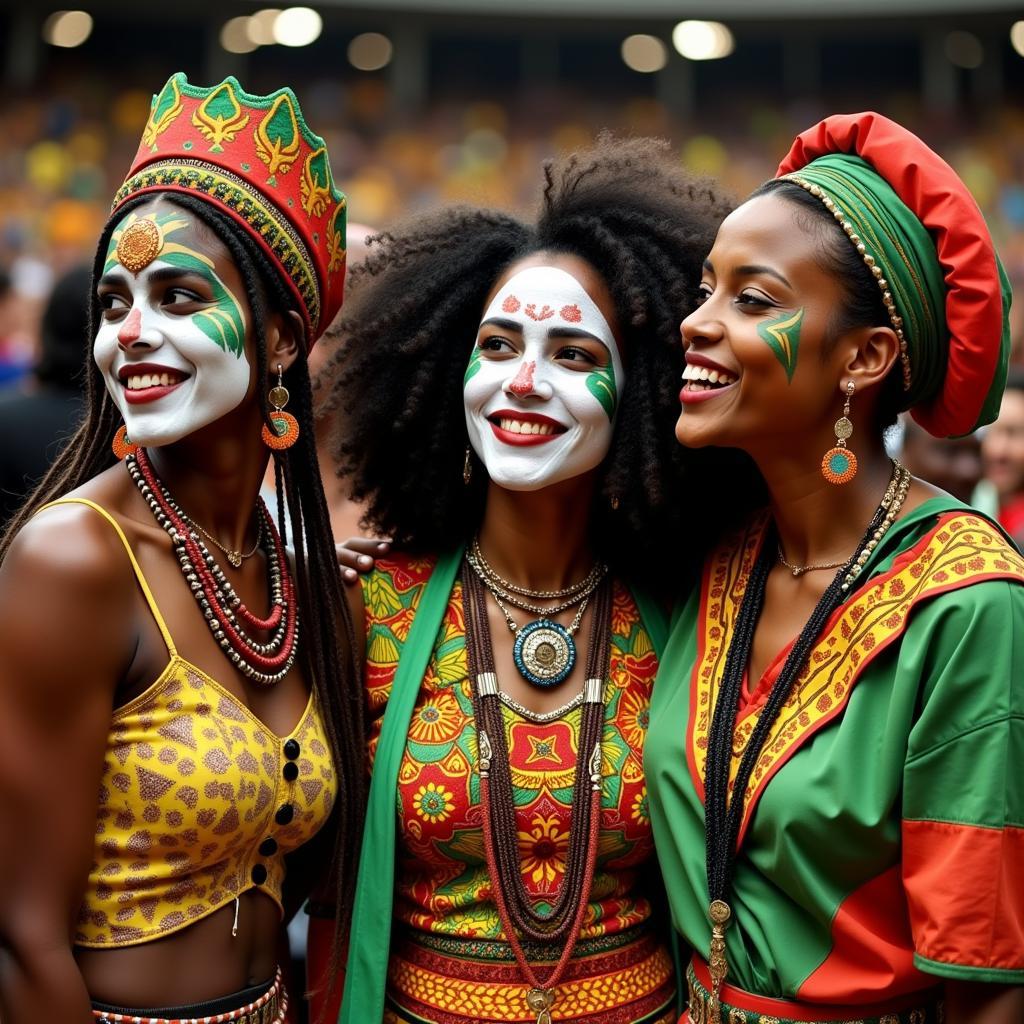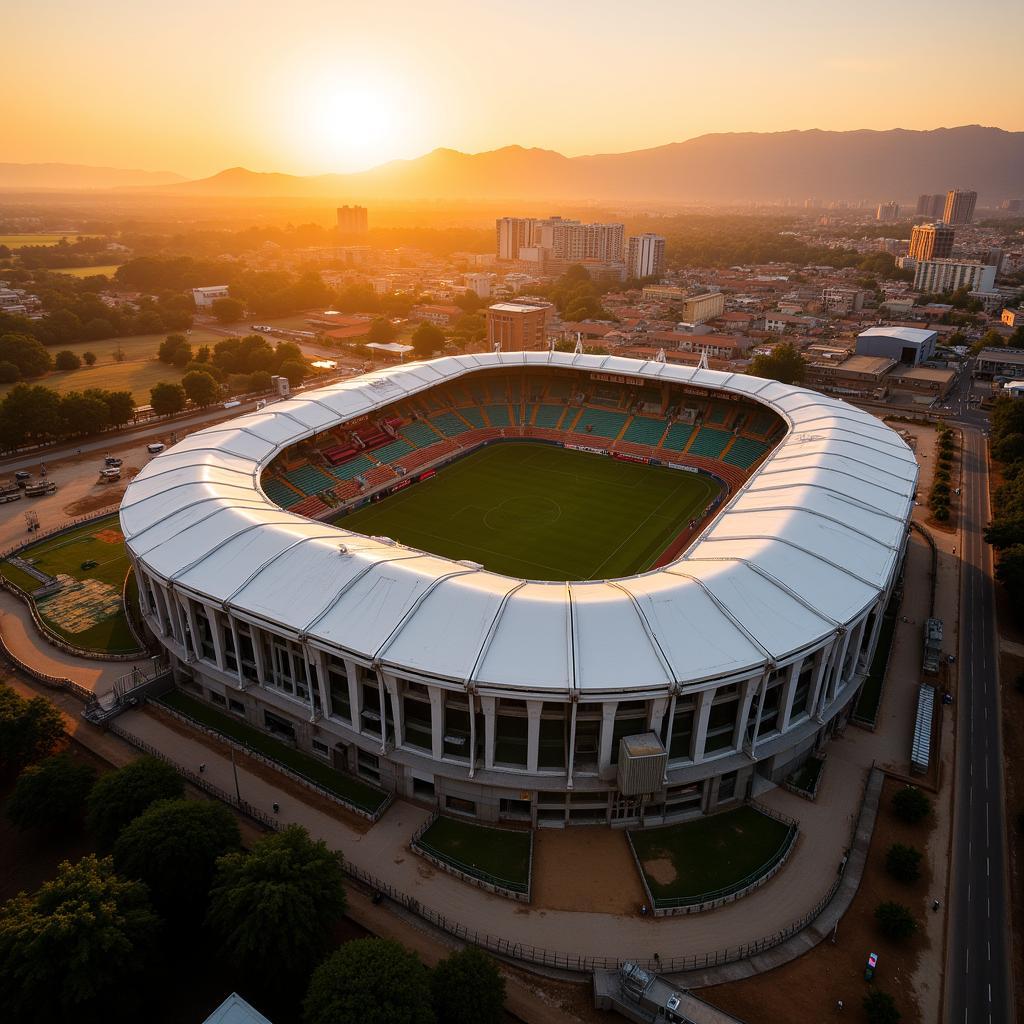African Cup of Nations: A Celebration of Football and Culture
The African Cup of Nations, often referred to as AFCON, is more than just a football tournament; it’s a vibrant tapestry woven from the threads of athletic prowess, national pride, and the rich cultural heritage of Africa. This continental spectacle captivates audiences worldwide, showcasing the beautiful game in all its glory while simultaneously offering a glimpse into the heart and soul of a continent brimming with passion and talent.
A Legacy Forged in Sporting Glory
Since its inception in 1957, the Africa Cup of Nations has grown exponentially, evolving from a modest competition featuring just three teams to a continental behemoth involving twenty-four nations vying for the coveted title. Held biennially, the tournament sees Africa’s finest footballers descend upon a chosen nation, igniting a fervor that pulsates throughout the continent and beyond.
 AFCON Celebration
AFCON Celebration
The tournament’s rich history boasts legendary names like Cameroon’s Roger Milla, Egypt’s Essam El-Hadary, and Ghana’s Abedi Pele, players who etched their names into African football folklore through their dazzling skills and unwavering determination. These icons, alongside countless others, have inspired generations of aspiring footballers, fueling the dreams of young boys and girls across the continent who dare to follow in their footsteps.
More Than Just a Game: AFCON’s Cultural Significance
Beyond the thrill of the beautiful game, the African Cup of Nations serves as a powerful platform for cultural exchange and unity. It transcends the boundaries of language, ethnicity, and religion, uniting people from all walks of life under the shared banner of football.
 AFCON Fans in Traditional Attire
AFCON Fans in Traditional Attire
The tournament provides a global stage for showcasing the diverse cultural tapestry of Africa. From the intricate rhythms of traditional music and dance performances that accompany the matches to the kaleidoscope of colors adorning the stadiums, AFCON offers a glimpse into the continent’s rich artistic heritage.
A Catalyst for Growth and Development
The African Cup of Nations is not without its impact on the economic and infrastructural landscape of the host nation. The tournament necessitates significant investment in sporting infrastructure, including the construction of state-of-the-art stadiums and the upgrading of existing facilities.
 AFCON New Stadium
AFCON New Stadium
This surge in investment extends beyond the realm of sports, spilling over into sectors like tourism and hospitality, creating employment opportunities and stimulating economic growth. The influx of fans, media personnel, and tourists injects a significant financial boost into the host nation’s economy, leaving a lasting legacy that extends far beyond the final whistle.

